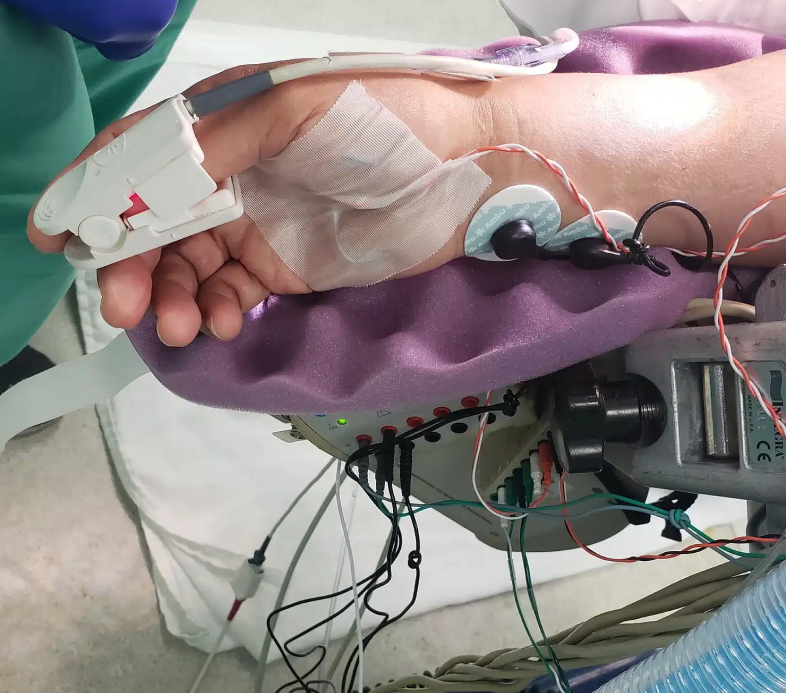MEP Test in Miami-Dade & Broward
What is MEP in intraoperative monitoring?
Motor evoked potentials (MEPs) are the electrical signals recorded from the descending motor pathways or from muscles following stimulation of motor pathways within the brain. They are used for intraoperative monitoring (IOM) to test the motor pathways.
Muscle responses are particularly affected by anesthesia and neuromuscular blockade, and special stimulation techniques and certain anesthetic regimens are used to optimize MEPs during IOM.
MEPs are used to monitor the functional integrity of the motor system during surgery.

Why Use MEP Monitoring During Surgery?
Motor responses can be heavily affected by anesthesia and neuromuscular blockers. That’s why intraoperative MEP monitoring uses specialized stimulation techniques and anesthetic protocols to ensure accurate readings.
Surgeons rely on MEP tests to:
Prevent irreversible motor damage
Adjust surgical techniques immediately
Improve patient outcomes and recovery
Who Benefits from Our MEP Test Service?
Our MEP test solution is ideal for:
Hospitals performing spinal, brain, or orthopedic surgeries
Surgical teams seeking expert motor pathway monitoring
Clinics without in-house neuro monitoring teams
Don’t leave patient outcomes to chance.
Contact us now to schedule a MEP test or evoked potential test and keep your surgical standards high.